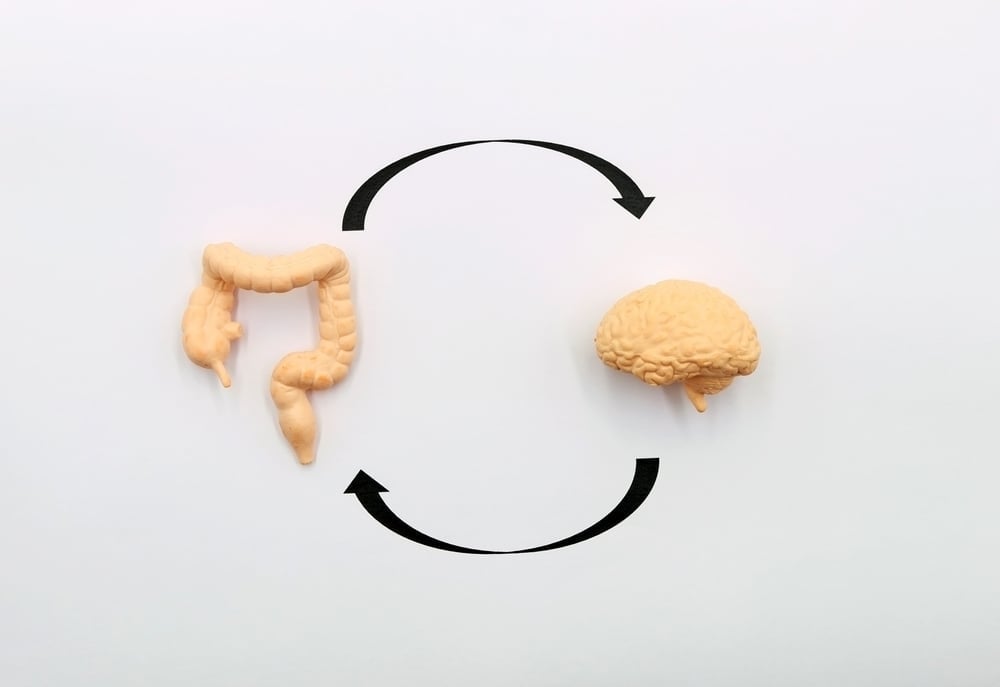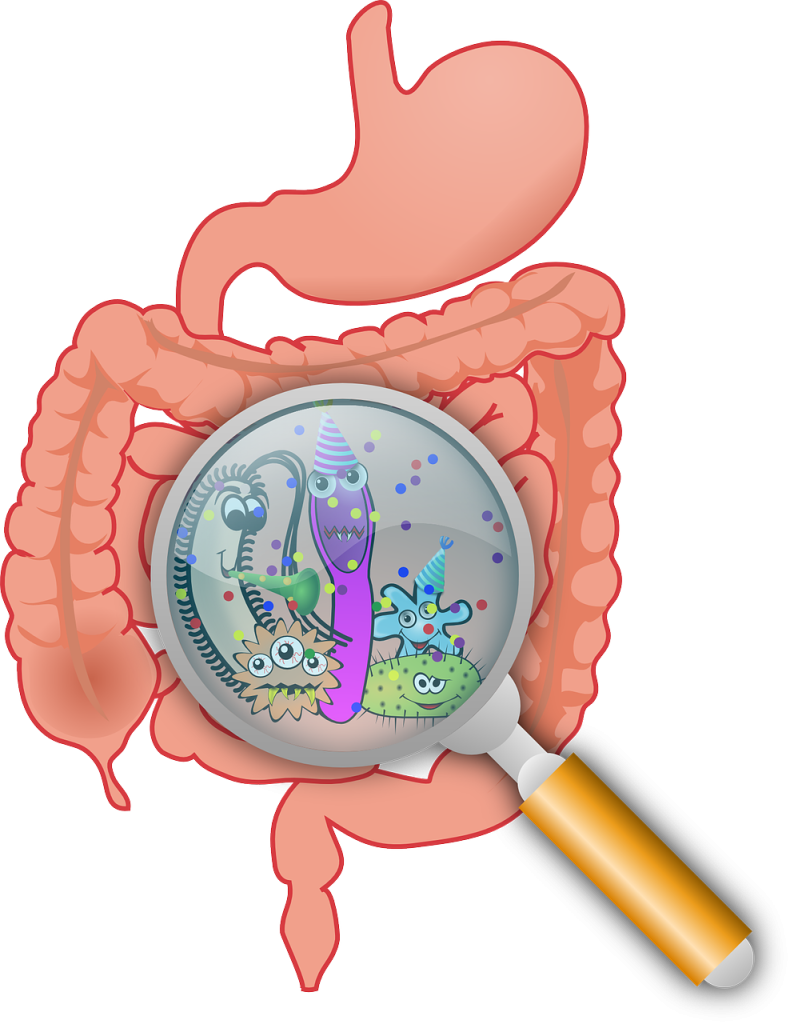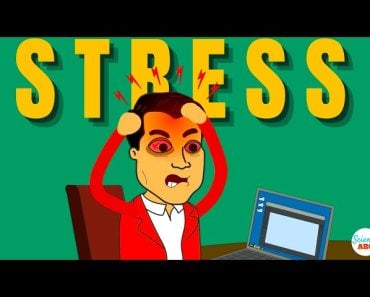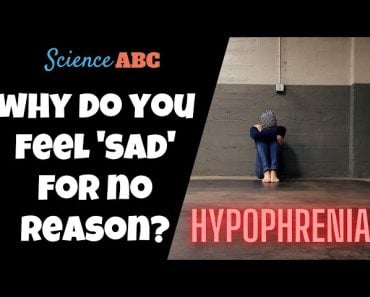The sudden sensation of “dropping” in your stomach experienced during moments of anxiety results from a decrease in blood supply to the digestive system—a component of the fight-or-flight response. This highlights how closely your brain and gut work together, emphasizing the strong connection between emotions and physiology—an even tighter bond than we realized!
You’ve likely experienced the sudden, sinking sensation in your stomach when fear or anxiety suddenly takes hold. It’s a visceral reaction, almost as if your stomach has decided to free fall towards your feet. But what triggers this peculiar response, and why does your stomach seem to plummet when anxiety sets in?
It turns out that this unsettling feeling isn’t merely a product of your imagination, but has a clear physiological basis, directly reflecting the intricate connection between the brain and the gut.
The connection between the brain and gut allows them to exert a direct impact on each other. Consequently, the butterflies that flutter in your stomach when your crush walks in, the nausea provoked by unpleasant thoughts, or the gut-wrenching feeling in certain uncomfortable situations all stem from the signals your brain sends to your gut. The infamous stomach “drop” due to anxiety falls into this same category.
Let’s delve deeper into this connection between our stomach and our head.
Recommended Video for you:
The connection between the brain and gut
Within our bodies, the gastrointestinal tract harbors an intricate nervous system known as the enteric nervous system or ENS. Comprising nearly 600 million neurons, this system is a vital component of the autonomic nervous system, alongside the sympathetic and parasympathetic nervous systems.
The ENS extends from the esophagus (food pipe) to the rectum and operates independently of the central nervous system, which includes the brain and spinal cord. Despite this autonomy, a dynamic two-way communication link exists between the enteric and central nervous systems, giving rise to what we call the gut-brain axis.

With the cross-talk between the brain and the gut, your emotions affect your stomach and vice versa.
This interplay manifests in various bodily sensations, from butterflies in the stomach to the sense of your stomach dropping in moments of anxiety.
Fight-or-flight response
Under normal, non-threatening circumstances, the neurons of the ENS, upon sensing food, signal the muscles in the digestive tract to contract and help digest the food.
However, when you’re anxious or stressed, a distinct physiological response is initiated, launching the fight-or-flight response.
The initiation of the fight-or-flight response unfolds in two phases—the initial “quick” response, marked by the release of adrenaline to deal with immediate danger, and the subsequent “slow” response, wherein cortisol takes center stage.
The release and impact of these hormones play a pivotal role in illustrating how the gut-brain axis mediates the stomach-dropping sensation.
As your brain senses distress, it dispatches a message through the hypothalamus to the adrenal glands. These glands respond by releasing epinephrine, commonly known as adrenaline, into the bloodstream.
Adrenaline induces several physiological changes, including an increase in heart rate, elevation of the blood pressure, and constriction of blood vessels, thereby changing blood flow to different organs.
Change in blood flow causes the “drop” sensation
As a part of the fight-or-flight response, the body suppresses digestion and strategically reroutes its resources to other organs. This redirection prepares the body to respond swiftly and effectively in the presence of a perceived threat. The vital supply of blood to the digestive tract is diverted toward organs like the brain and muscles, which are recognized as essential for survival.
Simultaneously, the impact of adrenaline causes the bronchioles to dilate, allowing for increased oxygen intake. This ensures a continuous supply to the brain, enhancing alertness.
When the body continues to sense danger, the second phase of the stress response is triggered. This phase involves the release of corticotrophin-releasing hormone (CRH), which prompts the release of cortisol from the adrenal glands. Once cortisol enters the bloodstream, it also contributes to the reduction of blood supply to the digestive system. Additionally, it directs more blood toward vital organs like the brain, heart and muscles.
The brain perceives this change in blood supply as a sudden feeling of emptiness. This perception feels as though your stomach has “dropped”.
In addition to these hormones, certain neurotransmitters, such as serotonin, also influence the gut-brain axis and may play a role in the mediation of physical responses elicited due to stress.
The role played by neurotransmitters
Serotonin is a crucial neurotransmitter that wields a considerable influence on gut motility. Fluctuations in gut motility, in turn, can give rise to tangible sensations similar to the fluttery or dropping feeling in the stomach. Interestingly, an impressive 95% of the body’s serotonin is synthesized within the gut itself.
The elevation of cortisol levels in response to emotional distress and anxiety exerts influence on the activity of muscles in the digestive system. This heightened cortisol presence may contribute to inflammation, disrupting the delicate balance of the gut microbiome. The resulting imbalance, in turn, can impact the release of serotonin, thereby inducing alterations in gut motility.

Serotonin also impacts mood and emotions. This makes it pertinent to acknowledge that changes in the gut microbiome produce serotonin, and that changes in the body can affect the serotonin levels that the gut microbes secrete. This change in serotonin from the gut can also lead to feelings of anxiety.
The intricate connection between psychology and physiology
To sum it up, the stomach drop you feel in moments of anxiety vividly illustrates how intricately emotions can affect physiology. Although the sensation can seem unpleasant, it is mostly harmless. Yet, if this sensation comes with prolonged feelings of nausea, dizziness, or cramps, it’s advisable to consult a physician.
Experiencing a momentary drop in your stomach from nervousness is one thing, but dealing with persistent discomfort due to prolonged anxiety is a different matter altogether. Remember, persistent stress and anxiety can lead to more serious issues like irritable bowel syndrome (IBS), so it’s important not to ignore any symptoms. Keep an eye on how you’re feeling, and don’t hesitate to seek medical advice if needed.
References (click to expand)
- Fleming, M. A., Ehsan, L., Moore, S. R., & Levin, D. E. (2020, September 8). The Enteric Nervous System and Its Emerging Role as a Therapeutic Target. Gastroenterology Research and Practice. Hindawi Limited.
- Rao, M., & Gershon, M. D. (2016, July 20). The bowel and beyond: the enteric nervous system in neurological disorders. Nature Reviews Gastroenterology & Hepatology. Springer Science and Business Media LLC.
- The gut-brain axis: interactions between enteric microbiota, ....
- Physiology, Stress Reaction - StatPearls.
- Stress and the Digestive System.
- Understanding the stress response.
- Go with your Gut: Increase Serotonin by Improving Gut Health.













